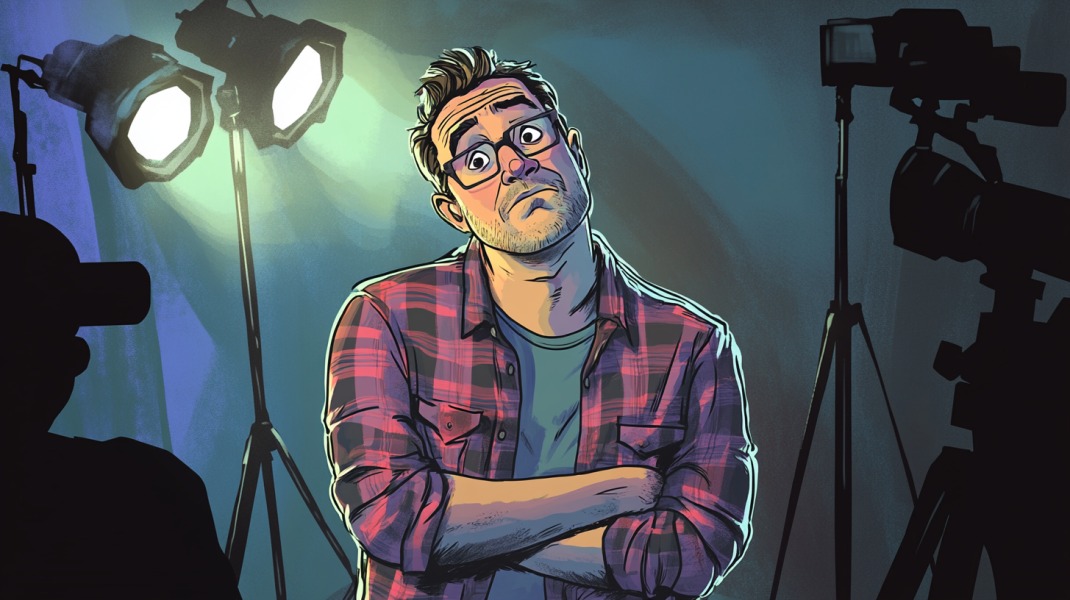In today’s political landscape, figures like Tim Walz’s vice-presidential candidacy and Doug Emhoff, Kamala Harris’ husband and the nation’s Second Gentleman, are being praised as modern examples of masculinity. But if you take a closer look, you’ll see that these men often reflect the same characteristics seen in the men of 90s sitcoms—amiable, supportive, yet lacking the strength, decisiveness, and leadership that define true manhood. This trend didn’t start today; it’s a continuation of how the media has conditioned us to view men in a certain light. Let’s explore how this conditioning has shaped our understanding of masculinity and why it falls short of what real manhood should represent.
The 90s Sitcom Male: The Goofy, Fake Authority Figure
In many sitcoms of the 90s, male characters were often portrayed as bumbling idiots—men who pretended to have authority but quickly crumbled when the real decision-maker, usually a woman, stepped in. These characters often embodied a fake sense of authority, masking their incompetence with bravado, only to reveal their true lack of capability when faced with real challenges. They were often the source of comic relief, but their portrayal as goofs with no real leadership qualities sent a damaging message about manhood.
This depiction wasn’t just about getting laughs; it conditioned viewers to see men as unreliable leaders, incapable of handling the pressures of family and life without falling apart. When the real boss entered the scene, these men shrank into the background, reinforcing the idea that they were neither needed nor capable of making important decisions. This portrayal undermined the concept of men as strong, responsible figures who could be relied upon to guide their families through tough times.
The Damage Done: Undermining True Masculinity
The damage from these portrayals is deeper than we might think. Young men growing up watching these shows were exposed to a version of masculinity that was both comical and pitiful—men who were meant to lead but were constantly undermined by their own ineptitude. This created a false narrative that being a man meant either being a joke or stepping aside for someone more capable to take charge.
However, true manhood involves more than just pretending to be in control. It’s about real leadership—embracing responsibility and understanding that the success or failure of the family often rides on the man’s shoulders, regardless of whether he is making every decision. While it’s important to recognize that not all decisions should be made by the man, and that a healthy partnership is built on mutual respect and shared responsibilities, it’s also crucial to understand the unique role that men play in the success of their families.
Partnership and Responsibility: The Balance of True Masculinity
Support and partnership are key components of a healthy relationship, but it’s essential that these elements are grounded in a clear understanding of roles and responsibilities. In a strong partnership, the man doesn’t always have to be the one making decisions, but he must be a reliable and capable leader when it counts. The idea that men should simply step back and let others take charge diminishes their role and ultimately weakens the foundation of the family.
A true partnership understands that both parties bring unique strengths to the table, and while the man may not make every decision, his presence as a strong, dependable figure is vital. The success or failure of a family often depends on the man’s ability to lead with integrity, strength, and compassion. When men are reduced to the role of the goofy, ineffective partner, the entire dynamic suffers, and the real responsibilities that come with manhood are undermined.
Reclaiming Masculinity: Moving Beyond the Stereotypes
As we reflect on how media has shaped our understanding of masculinity, it’s clear that it’s time to move beyond these outdated stereotypes. True manhood isn’t about pretending to be in charge or playing the fool; it’s about embracing the responsibilities that come with being a man. This includes being a supportive partner, but also stepping up when leadership is required and understanding that your role in the family’s success is crucial.
We need to challenge the narratives that have conditioned us to accept a watered-down version of masculinity and instead strive to embody the full spectrum of masculine virtues. This means embracing courage, integrity, and leadership, while also being emotionally balanced and supportive.
Let’s look for role models who demonstrate these virtues, whether in our personal lives or in the media we consume, and strive to be the best versions of ourselves. The next generation deserves better than the weak, go-along masculinity of sitcoms and the public figures who follow in their footsteps.
Challenge:
I challenge you to reconsider the media you consume and the male role models you look up to. Are these figures inspiring you to be strong, responsible, and decisive, or are they reinforcing a limited and passive view of manhood? It’s time to take control of your narrative and redefine what it means to be a man in today’s world. Don’t let the conditioning of the past dictate your future. Instead, embrace the qualities that make for true manhood and show the world what it really means to be a man.
ModernMasculinity, #TrueManhood, #RedefiningRoles, #MediaInfluence, #MaleRoleModels, #MasculinityMatters, #PoliticalMasculinity, #BecomingAMan, #Leadership, #MasculineVirtues

